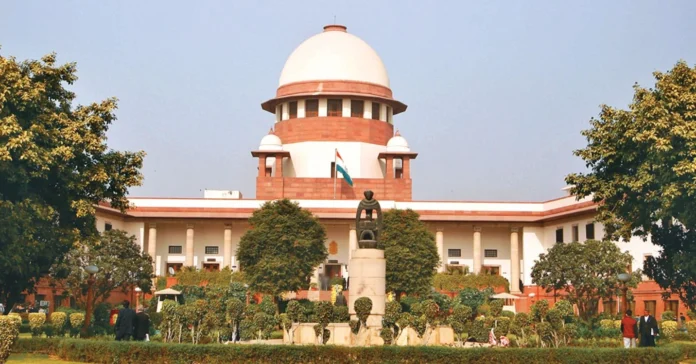The Supreme Court summoned Electronic Voting Machines (EVMs)in a landmark decision, directed a comprehensive recount of votes in the Gram Panchayat Sarpanch election at Buana Lakhu village, Panipat, Haryana. In a rare judicial move, the apex court also reversed the declared result after the recount confirmed a different winner.
A bench comprising Justices Surya Kant, Dipankar Datta, and N. Kotiswar Singh made the order, acknowledging concerns raised by the petitioner, Mohit Kumar, against the declared victor, Kuldeep Singh, whose win in the November 2, 2022, poll was contested. Prior to approaching the top court, a tribunal had permitted a recount at only one booth—Booth No. 69—on April 22, 2025. This limited recount was later quashed by the Punjab and Haryana High Court.
On July 31, the Supreme Court expanded the scope, ordering that all EVMs and associated records from every polling booth be produced before a Registrar appointed by the Court and that recounting occur under video supervision. Representatives of both contesting parties were present throughout.
The recount took place on August 6, covering booths numbered 65 through 70. The Registrar’s tally stood at 1,051 votes for Mohit Kumar and 1,000 for Kuldeep Singh—upturning the earlier result.
On August 11, the Court examined the recount report and found no grounds to dispute its credibility, especially given the full videotaping and sign-off by both parties’ agents. It overturned the High Court’s decision and declared Mohit Kumar the lawful Sarpanch. The Deputy Commissioner-cum-Election Officer was directed to issue a formal notification within two days, enabling Kumar to assume office immediately.
The apex court further instructed that the resealed EVMs and recount records be returned to the Election Tribunal, which may proceed with final adjudication. However, the recount report submitted by the Registrar will be treated as final and binding for determining the election outcome.
This unprecedented judicial oversight underscores the Supreme Court’s readiness to ensure electoral integrity—even extending to village-level polls, where every vote holds significant democratic value.


